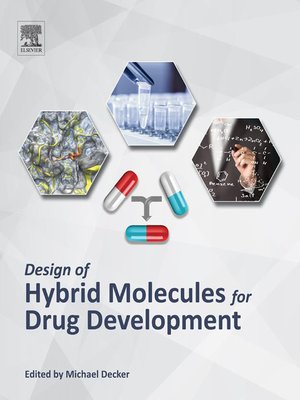
Sign up to save your library
With an OverDrive account, you can save your favorite libraries for at-a-glance information about availability. Find out more about OverDrive accounts.
Find this title in Libby, the library reading app by OverDrive.



Search for a digital library with this title
Title found at these libraries:
| Loading... |
Design of Hybrid Molecules for Drug Development reviews the principles, advantages, and limitations involved with designing these groundbreaking compounds. Beginning with an introduction to hybrid molecule design and background as to their need, the book goes on to explore a range of important hybrids, with hybrids containing natural products, molecules containing NO- and H2S-donors, dual-acting compounds acting as receptor ligands and enzyme inhibitors, and the design of photoresponsive drugs all discussed.
Drawing on practical case studies, the hybridization of molecules for development as treatments for a number of key diseases is then outlined, including the design of hybrids for Alzheimer's, cancer, and malaria.
With its cutting-edge reviews of breaking developments in this exciting field, the book offers a novel approach for all those working in the design, development, and administration of drugs for a range of debilitating disorders.







